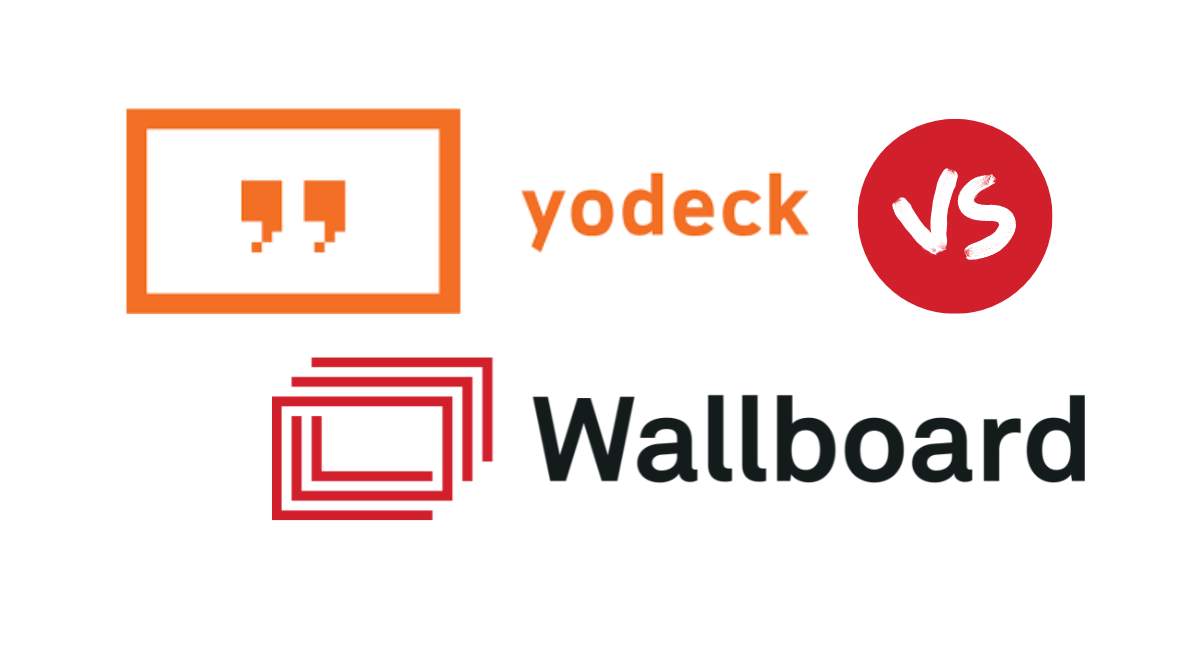

Digital Signage Software: The Backbone of Dynamic Displays
Digital signage software serves as the backbone of any digital signage network, providing the foundation for digital signages and comprehensive digital signage solutions used across industries. It is the engine that drives the content displayed on screens. Here are some key features and functions of digital signage software that we recommend diving deep into when determining which option is best for you.
Content Scheduling
Digital signage software allows users to schedule content to be displayed on screens at specific times and dates. This feature is invaluable for businesses looking to display different messages or promotions throughout the day or week.
Remote Management
One of the biggest advantages of digital signage software is the ability to manage content remotely, with cloud-based solutions offering remote access as a key feature. This means that you can update and control your digital signs from anywhere with an internet connection, providing flexibility and convenience.
Content Playback
Digital signage software is responsible for playing back digital content, such as images, videos, and animations, on the screens. It ensures that the content, specifically digital sign content, is managed and displayed correctly and smoothly.
Templates and Design Tools
Many digital signage software solutions, like Wallboard, offer built-in customizable templates and design tools, as well as the ability to create custom layouts, to help users create eye-catching content without the need for advanced graphic design skills.
Real-time Updates
Some advanced digital signage software can provide real-time updates and data integration, allowing you to display dynamic content like live news feeds, social media streams, and weather information. This ensures that all your content stays up to date across every display.

Content Management Systems (CMS): Organizing & Distributing Content
Content management systems (CMS) are platforms designed to create, organize, and manage content. While CMS can be used for various purposes, including website management, when applied to digital signage, they serve very specific functions:
Offline Playback and Backup
A robust digital signage content management system is designed to keep your digital signage displays running smoothly, even when your internet connection is interrupted.
With offline playback capabilities, your digital signage CMS stores essential content locally on the digital media player, ensuring that scheduled messages, promotions, and updates continue to appear on your screens without disruption. This feature is crucial for maintaining consistent messaging and a professional appearance, regardless of network issues.
In addition to offline playback, a reliable content management system should offer automatic backup solutions. Daily backups to secure cloud storage protect your digital signage content from accidental loss, technical failures, or unforeseen events.
By safeguarding your digital assets and minimizing downtime, these backup features help ensure business continuity and peace of mind for organizations relying on digital signage for communication and engagement.
Multi-Screen and Multi-Location Management
As digital signage networks expand, managing multiple screens across various locations becomes increasingly complex.
A powerful digital signage CMS simplifies this process by providing centralized control over all your digital signage displays, no matter where they are located. With a centralized platform, businesses can easily deploy, update, and manage content across multiple screens and sites from a single dashboard.
This multi-screen and multi-location management capability ensures that your messaging remains consistent and on-brand, whether you’re operating in one building or across a global network. By streamlining content updates and scheduling, a signage cms empowers organizations to deliver a unified customer experience and maximize the impact of their digital signage solution.
Content Creation
Content management systems (CMS) are platforms designed not only to organize and manage content but also to create it.
While CMS tools are widely used for websites, in digital signage they serve a specific purpose: empowering businesses to both design and distribute engaging content across their signage networks.
Many digital signage CMS platforms come equipped with built-in content creation tools like drag-and-drop editors, customizable templates, and media libraries that allow users to design visually compelling layouts without needing advanced graphic design skills.
From there, the CMS handles content scheduling, updates, and distribution, giving users centralized control over multiple screens and locations. This combination of creation and management features streamlines workflows, shortens content production cycles, and ensures consistent messaging across all displays.
Content Storage
CMS systems act as a central repository for all digital signage content. This makes it easy to access and update assets when needed.
User Permissions
Many CMS solutions, like Wallboard, offer advanced user access controls and permissions, allowing organizations to assign different levels of access to team members responsible for managing the content. This ensures content security and quality control.
Content Distribution
A significant distinction between digital signage software and CMS is that the latter is primarily focused on content creation and organization. Once content is created in a CMS, it is typically exported and then uploaded into the digital signage software for scheduling and display. Modern CMS platforms can efficiently distribute content and publish content to different screens and all your screens, ensuring that updates reach every display quickly and can be managed centrally.
Advanced Capabilities and Support
Today’s digital signage cms platforms are equipped with advanced features to meet the diverse needs of modern businesses. Real-time data integration allows you to display up-to-the-minute information, such as live news, weather updates, or social media feeds, directly on your digital signage displays.
Interactive displays and touch-enabled content engage audiences and encourage participation, while targeted advertising tools help you reach specific audiences with relevant messages.
A user friendly interface is essential for managing digital signage content efficiently, enabling users of all technical backgrounds to create, schedule, and update content with ease.
Additionally, responsive customer support is vital for resolving technical issues quickly and ensuring your digital signage operations run smoothly. With these advanced capabilities and dedicated support, your signage cms becomes a powerful tool for delivering engaging content and achieving your communication goals.
Analytics and Performance Metrics
To maximize the effectiveness of your digital signage network, it’s important to track how your content is performing.
A comprehensive digital signage cms includes built-in analytics and performance metrics, giving you valuable insights into content playback, audience engagement, and screen performance. These analytics help you understand which messages resonate with your audience and identify opportunities for improvement.
Customizable dashboards and detailed reports allow you to monitor the metrics that matter most to your business, from content popularity to screen uptime. By leveraging these insights, you can refine your digital signage strategy, optimize your content, and enhance audience engagement across all your digital signage displays.
Future Trends and Developments
The digital signage industry is rapidly evolving, with new technologies and trends shaping the way businesses communicate with their audiences. A forward-thinking digital signage cms is designed to adapt to these changes, incorporating innovations such as artificial intelligence, augmented reality, and the Internet of Things (IoT) to deliver even more dynamic and interactive experiences.
Staying ahead of the curve means choosing a signage cms with a clear roadmap for future development, ensuring your digital signage solution remains relevant and competitive. By embracing the latest advancements in digital signage technology, businesses can future-proof their investments, deliver cutting-edge content, and continue to engage their audiences in new and exciting ways.
Choosing the Right Solution
When deciding between digital signage software and a CMS, it’s essential to understand your specific needs and objectives. Consider your target audience and customer preferences, as tailoring content and interactive features to these factors can significantly enhance engagement and provide a more personalized experience. Here are some additional factors to consider when choosing the right choice for your organization.
Scalability
If you’re managing a large network of digital signs, especially across multiple displays and multiple locations, with diverse content and scheduling requirements, a robust digital signage software solution is crucial.
Content Creation
If you need advanced content creation and design capabilities, a CMS can be beneficial, especially when combined with digital signage software for distribution.
Remote Management
If you require the ability to update content on the go and from various locations, a reliable internet connection is essential to ensure effective remote management. Digital signage software with remote management features is essential.
Integrations
Consider whether you need real-time data integration or specialized features like interactive touchscreens, as some digital signage software may offer these capabilities.
In conclusion, digital signage software and content management systems are complementary components of an effective digital signage strategy. While digital signage software focuses on display and scheduling, a CMS is valuable for content creation and organization. The choice between the two depends on your unique requirements and goals, but often, a combination of both can provide the most comprehensive solution for dynamic and engaging digital signage displays. Wallboard Display is an all-in-one solution that is a perfect combination of powerful digital signage functionality and innovative content management software.
Ready to get started with digital signage for everyone?


.png)


